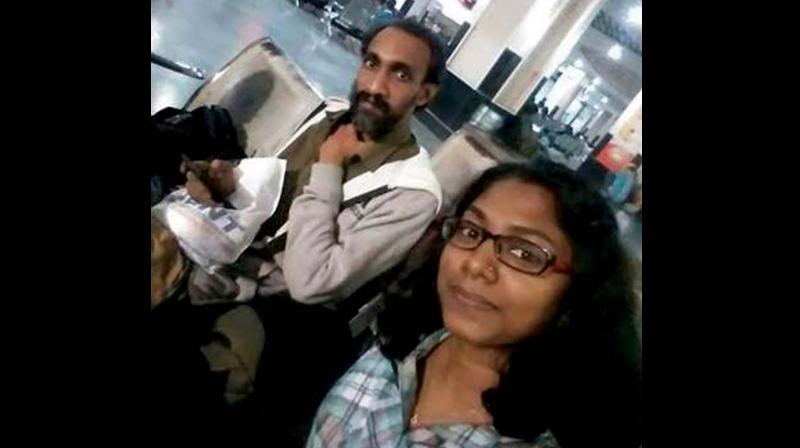Kerala: Couples done in by leaks from sub-registrar's office
The Sangh Parivar has turned out to be the most vocal group against such marriages.

The problems faced by inter-religious couples during the last few years could have been rip-roaringly funny had it not been a life and death issue. I and my partner, Divya, were denied a room in a hotel in a supposedly cosmopolitan metro like Bengaluru. The hotel staff assumed from our dress that we followed different beliefs and outright, without even bothering with lame excuses, told us that they would not allow us to sleep in one room. Our attempts to convince them that we were married cut no ice with them. If such a thing could happen to a married couple, just imagine the plight of interfaith couples who as a matter of choice had opted to live together without getting into a legal knot.
The situation in Kerala is no different, especially since the BJP government came to power at the Centre. The atmosphere has been further vitiated after the Hadiya case. The fundamental issue of a women's right to choose her life partner has been taken to the court. Even the court could not see the case simply as one of freedom of choice. In a state touted to be the most progressive, there have also been cases of people being ostracized for marrying low, for choosing a partner belonging to a caste branded low by outdated customs. The irony was, such incidents had happened at a time when the Left parties which had stood for individual freedom and choice ruled the state.
Both inter-religious and inter-caste couples are doomed. They may not get houses for rent to live in, especially if one of the couple belongs to a lower caste. I am not saying this based on my experience alone, but on those of my friends. Earlier, the issues in inter-religious and inter-caste marriages were caused by the families of the bride or the bridegroom, or both. Such issues invariably were resolved over time. Now, this is not the case. The issues have been taken out of proportion with community and religious organizations moving in. The Sangh Parivar has turned out to be the most vocal group against such marriages. Even the officials of sub-registrar offices have become pawns in the hands of such groups.
Once, two persons belonging to different communities submit an application for marriage under the Special Marriage Act, it is leaked to the outside parties. According to law, the parties need to provide a notice of one month before the marriage is solemnized. This window of one month is use by religious groups to shame the couple through social media. This puts both the families of the couple, as well as the couple, under tremendous stress.
Then there is the Love Jihad bogey let loose by the Sangh Parivar to haunt Hindu-Muslim couples. Take the case of my marriage that took place four years ago. I applied under the Special Marriage Act at a sub registrar office at Nedumangad. The sub-registrar was not a 'Sanghi'. He was a Muslim. Still, he did not seem convinced about the motive of the marriage. It was only after some Left activists intervened and talked to the sub-registrar that he agreed to conduct the marriage. The damage the Love Jihad propaganda had done to the secular fabric of the state is irreversible.

